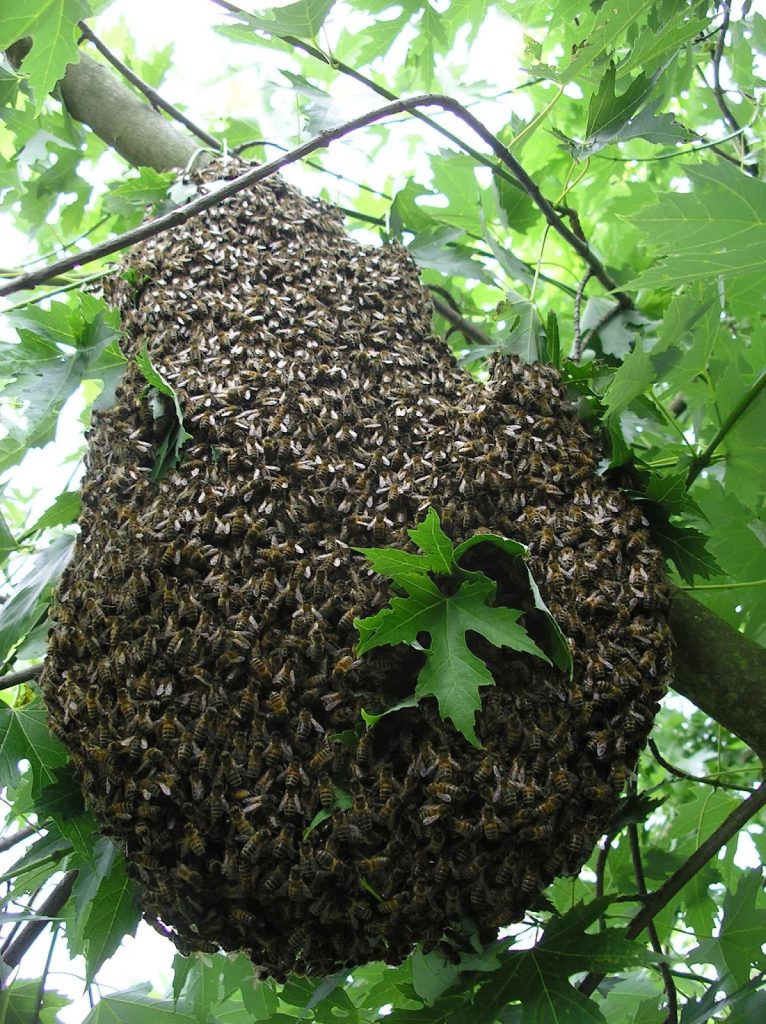I’ve kept bees in Shepperton for 28 years; looking at bees getting on with things as they have for 65+ million years, hearing their buzz with the roar of the M3 half a mile away gives a certain perspective on bees and humans!
Shepperton is a great area for bees to live, because there is plenty of forage for them in the large undeveloped areas around the lakes and by the rivers, and there is little intensive agriculture or monoculture.
The only shame is that beehives are not allowed on allotments in Shepperton as they used to be, because they pollinate the variety of fruit and vegetables grown there and increase their yield and quality.
Bees are in decline, along with other pollinating insects. Their problems are overwhelmingly man-made, for instance loss of habitat: bees live in holes in trees in the wild, and trees with holes are seen as diseased and tend to get felled.
Loss of diversity is another reason: 97% of wild flower meadow has been lost, ploughed up to grow our crops, and flowers in parks and gardens tend to be limited, and many are sterile and have no value to bees. Remember that we have bees to thank for the existence of flowers: they evolved about 65m years ago to attract bees to their pollen, giving them nectar in return.
Another aspect of loss of diversity is monoculture – bees are made to pollinate crops like oil seed rape for us. a monotonous diet is not healthy for us or bees.
Insecticides and herbicides are obvious culprits, but the most common cause of death of a colony are Varroa mites that kill our European honeybees. They originally coexisted with Asian honeybees, Apis Cerana, but migrated onto Apis mellifera, the European honeybee via beekeepers.
The irony is that we depend on the bees for our own survival. We can live without honey but we can’t survive without bees pollinating much of the food we eat. Did you know that all the commercially grown tomatoes you eat are pollinated by bumble bees?
How can you help bees? Perhaps the best answer is what not to do:
- Don’t use Insecticides and herbicides in the garden.
- Don’t pave over your garden; there are plenty of low maintenance, bee friendly plants like sedum and chamomile that don’t mind footfall or car tyres.
- Don’t cut down mature trees – new trees will take 50+ years to replace them.
- You don’t have to have wild areas of nettle and bramble in your garden to attract insects. Planting bee friendly hardy perennials and shrubs is good, but in built up areas planting trees is ideal: they are a major source of forage for bees. In a built up area, they are like an acre in the sky, with only the size of the trunk on the ground. The bees keep out of your way up there too. Various acers like sycamore and field maple are good, and trees like amanchelier, hawthorn and willow.
As you can see, you don’t need to keep bees to help them, but gaining an understanding of these amazing creatures is a way to learn something about ourselves and our relationship to the environment. Bees show what’s important in life.
Sally Pemberton http://beedances.blogspot.co.uk/2014/01/beedance-haiku.html

